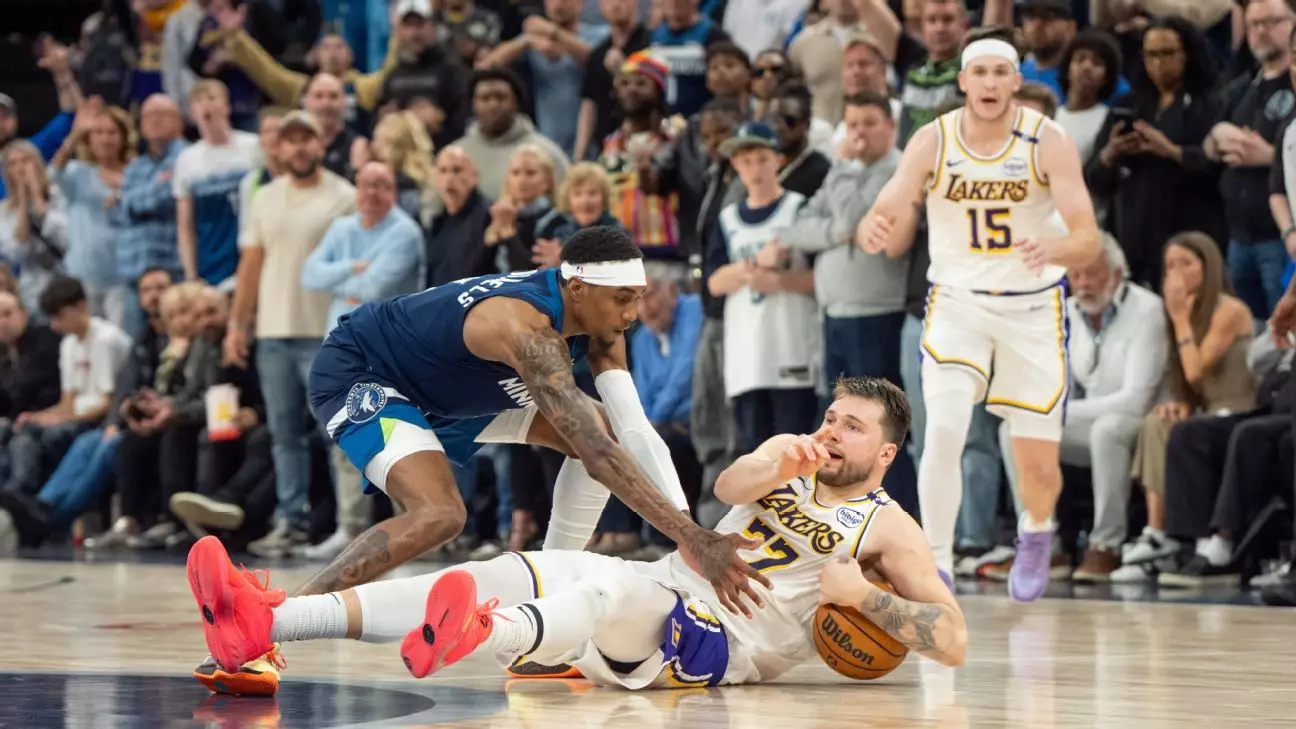The integrity of sport is often tested in its most critical moments, and the recent playoff games have thrust the spotlight onto NBA officiating in a glaring way. The Los Angeles Lakers’ bout against the Minnesota Timberwolves wasn’t just another game; it was a defining moment in the playoff series that raised profound questions about the refereeing that could alter a team’s fortunes. A missed foul call on Luka Doncic when the game was hanging by a thread exposed the cracks within the officiating system—and the implications are monumental.
With only 33 seconds left on the clock and the Lakers trailing by just one point, Doncic found himself entangled in a seemingly egregious foul that went unnoticed by the officiating crew. The moment is not merely a footnote; it is a flashing warning light for how the integrity of the playoffs hangs on the whims of referees and their ability—or inability—to make accurate calls under pressure. The NBA’s admission, citing their own Last Two Minute Report that clearly identified the illegal foot contact by Jaden McDaniels, only adds fuel to the fire of fans’ frustration.
More Than Just A Game Moment
In the high-stakes environment of playoff basketball, the outcome of a game can change with merely a whistle. This is not just about one call; it’s about momentum, psychology, and the palpable sense of fairness that must guide any sport. Doncic’s fall was more than a strategic play; it was a moment where the scales tipped dangerously toward a potentially unjust outcome, particularly when one considers the critical nature of those final seconds.
In another playoff clash, the New York Knicks faced their own officiating dilemma when Josh Hart fouled Tim Hardaway Jr. on what should’ve been a three-point shot. The lack of free throw opportunities for Hardaway not only impacted the game’s immediate outcome—a 94-93 win for the Knicks—but it also extends beyond mere statistics, contributing to an unsettling feeling among fans about the justice of the game.
The Ripple Effect of Controversial Calls
These crucial non-calls illustrate a larger issue in the NBA: how do arbitrary decisions by referees affect the psyche of players and fans alike? The Lakers’ missed opportunity reflects a common thread all too familiar in sports—teams must now navigate not just their opponents but also potential biases within officiating. Players like LeBron James, who took the floor with evident frustration, voiced concerns about the nature of fouls, suggesting that while “the hand is part of the ball,” the inconsistency in calls creates confusion and controversy.
As the teams gear up for Game 5, with the Timberwolves currently holding a 3-1 lead, the ramifications of these officiating errors echo throughout the league. Can the players truly focus on executing their strategies or will the shadow of questionable officiating linger in their minds, hindering performance? It’s critical that the NBA take a serious and introspective look at the impact of officiating on the spirit of competition, especially during high-stakes playoff scenarios.
In a sport that thrives on precision—every dribble, every shot, and every call—is vital, the fallout from such officiating blunders calls into question the very principles that govern the beautiful game. Fans are left clawing for clarity, demanding not just accountability, but a return to the core value of fair play that the NBA was built upon.

